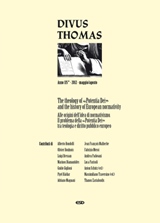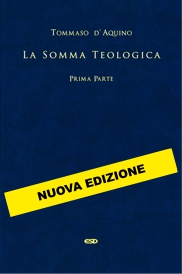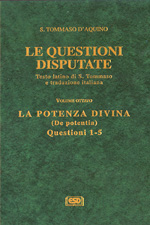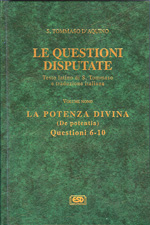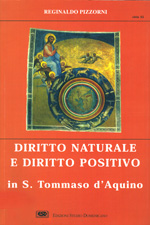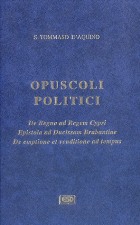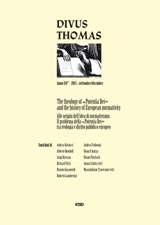
The Theology of «Potentia Dei» and the History of European normativity
ISBN:9788870948479
Pagine:272
Dimensione:150 x 210
Soggetti:Teologia
Anno:2013
Rilegatura:brossura
While the first volume of the transactions of the London-Trento colloquia on the theology of potentia Dei («Divus Thomas» special issue: n° 115/2, 2012), focused upon the rise of the question of power ordered and absolute, our main topic here are the sedimentations and articulations of this question in the positive legal orders, as well as the role they have played in the genealogy of modern state-building. In the modern section of the history of political power, the issue of God's power absolute and ordered (potentia absoluta and ordinata) remains crucial in travesties and transformations – though not always in the way anticipated by those who opened, earlier in the twentieth century, the Pandora’s box of «secularisation». The point of intersection here is provided by John Duns Scotus, who, unfolding his teaching on univocity, extends the range of his doctrine of potentia Dei beyond the theological realm to «any free agent whatever». In the situation of political and religious warfare of the late sixteenth century, the Scotist viewpoint continues to exercise its influence on politico-legal philosophers such as Jean Bodin or Alberico Gentili, when they defined the Prince's power either as puissance absolue et perpétuelle d'une République (Jean Bodin) or as plenitudo potestatis vel potestas extraordinaria (Alberico Gentili).
Il presente volume raccoglie gli atti di due convegni tenutisi a Londra e Trento rispettivamente a maggio e novembre 2012, nell'ambito della serie di convegni sul tema della potentia Dei di cui «Divus Thomas» ha già ospitato alcuni lavori in un numero speciale (115/2) apparso sempre nel 2012. Proseguendo nella direzione intrapresa con quel primo volume di atti, i contributi che qui si pubblicano si concentrano su alcune questioni particolari affrontate nel corso dei lavori – di carattere teologico, filosofico e giuridico –, riflettendo sulla loro relazione con le dottrine del nascente stato assolutistico. Rispetto a ciò, la questione della potentia Dei, nella sua distinzione in assoluta e ordinata, resta un problema cruciale della storia concettuale del potere, a dispetto dei travestimenti e delle trasformazioni che essa ha subito nel corso del tempo, sebbene non sempre nel senso voluto da coloro che per primi, nella letteratura dei primi decenni del ventesimo secolo, dischiusero il vaso di Pandora della «secolarizzazione». Nel nostro caso, il punto di partenza è rappresentato da Giovanni Duns Scoto, il quale, sulla base della sua dottrina dell'univocità, ha sviluppato la nozione di potentia Dei oltre l'indagine teologica su Dio, promuovendone l'applicazione ad ogni «agente libero». La posizione di Scoto sembra giocare un ruolo tutt'altro che secondario lungo tempo dopo, nell'ambito della giuspubblicistica di tardo Cinquecento, se solo si pensi alle definizioni del potere del Principe nei termini di una puissance absolue et perpétuelle d'une République (Jean Bodin) o di una plenitudo potestatis vel potestas extraordinaria (Alberico Gentili).

